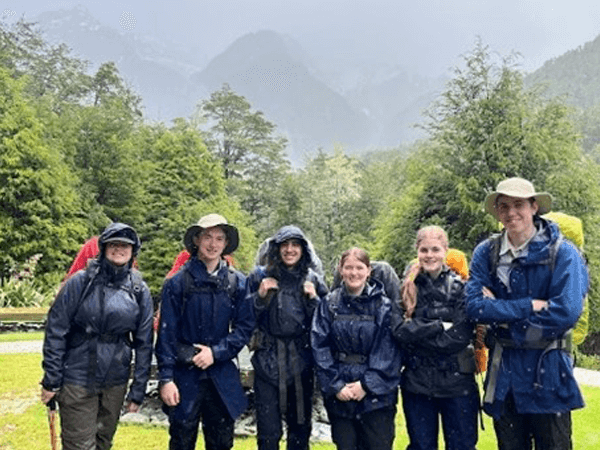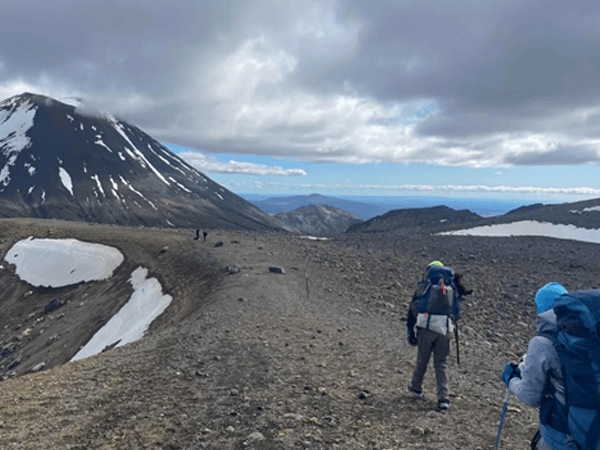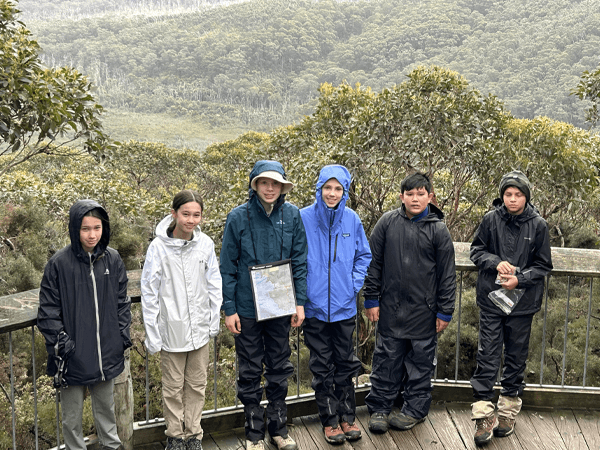Our New Youth Program
Unpacking the Outdoor Adventure Skills
![]()
The Outdoor Adventure Skills are one component of the Achievement Pathways, currently being trialled and introduced as part of the New Youth Program. You may have heard about the Outdoor Adventure Skills, but what exactly are they, and how will they be used in Scouting?
For over five years, the Youth Program Review teams have been studying, consulting, reflecting on, and comparing the entirety of the Scouting program to ensure it meets the needs of today’s, and tomorrow’s, young people. These concepts, which have been shared previously in Workshops around the country, have been exciting, challenging and questioning everyone’s understanding of Scouting, and how we can evolve to increase the impact and opportunities for Scouts.
Over 2016 and 2017, the New Program Concepts were shared with members to ensure the future of Scouting was on the right track. One concept shared was the idea of a scheme that reinforced outdoor adventure in Scouting, that allowed young people to explore more opportunities, and a framework that pushed them further. As a result, the Outdoor Adventure Skills were developed.
The Outdoor Adventure Skills framework promotes youth members’ exploration of, and progression through key outdoor pursuits. Designed for all ages and abilities, the Outdoor Adventure Skills reinforce what Scouting is well known for, and compliment other personal progression opportunities provided by Scouting.
This innovative framework has nine broad activity streams, ranging from Bushcraft and Camping, through to more specialised activities such as Cycling, Vertical and Aquatic. There are 9 developmental stages within each stream that supports a youth member’s pathway to learning the Outdoor Adventure Skills, and to help track skills that have been mastered, and those that are still developing.
The nine streams of the Outdoor Adventure Skills are comprised of three core areas (Bushwalking, Bushcraft and Camping) as well as six specialist areas (Alpine, Aquatic, Boating, Cycling, and Paddling and Vertical). The core areas represent “traditional” and typical Scouting activities, that one might expect to find common across all Australian Scout Groups. However, the specialist areas dive deeper into other interests, and may be more limited to geographical areas, or are favoured by a group of young people, but maybe not by others.
The following design principles of the Outdoor Adventure Skills have been used by the National Youth Program Team, Youth Program Review Coordinating Team, National Adventurous Activity Coordinators and National Operations Committee when developing the Outdoor Adventure Skills. These outline what the objectives for an Outdoor Adventure Skills concept would want to reflect:
- Focus on developing personal outdoor adventure skills
- Skills for adventure, not formal training in the leadership of groups
- Human/nature powered (i.e. nothing motorised)
- Involve significant interaction with the natural world
- Lead to extended journeys and expeditions in the upper levels
- Have enough content to work with 9 developmental stages

When Scouts Australia looked at this concept for the Outdoor Adventure Skills in late 2014 and early 2015, there was a clear need to be able to provide a framework for maintaining the integrity and core focus of the Outdoor Adventure Skills concept, whilst allowing for more specific and unique activities to be included. As a result, opportunities such as air activities, performing arts, JOTA/Radio Scouting, trail bike riding and four wheel driving are not included as an Outdoor Adventure Skill, but have not been left out of the new youth program. As the aforementioned activities provide valid and beneficial outcomes, they are incorporated into the new youth program in other areas. For those familiar with the program, activities such as these can be pursued in the Program Essentials of the Unit or the Special Interest Areas framework. By being incorporated into the Special Interest Areas framework, youth members are given the freedom to set their own goals within some minor guidelines. It is within this framework that youth members can complete their 4WD, air activities, performing arts and other similar pursuits personal goals.
If a youth member is up to the very significant challenge and manages to complete Stage 9 of an Outdoor Adventure Skills, this provides a very special opportunity for both Scouting and the individual. While likely to be a rare occurrence, this builds significant capacity within our organisation to support the Outdoor Adventure Skills, and once the youth member has exceeded the scope of the Outdoor Adventure Skills they will drive and mentor others through exciting adventures which can count towards other areas of their Achievement Pathways.
Excitingly, youth may also be able to have their skills externally recognised by the Scouts Australia Institute of Training (SAIT) from Stage 5 onwards, in most Outdoor Adventure Skill Streams.
The Outdoor Adventure Skills have been extensively reviewed and developed using critiques from adult Leaders qualified in Adventurous Activities. Currently, the Outdoor Adventure Skills are being utilised by Scout Groups in NSW, WA, ACT, VIC and SA, and will be used with more Scout Groups from later this year.



